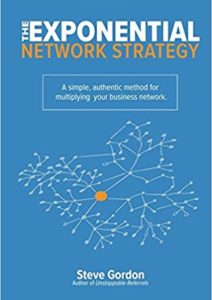Service-based businesses face a variety of unique challenges when trying to attract clients. Businesses that provide a service, instead of a product, are organizations that sell knowledge, skills and whatever is between their ears.
Be Clear on the Ideal Client:
Many businesses don’t have a real, clear definition of their ideal client. People assume that they know who their ideal client is, but when they are really pinned down for a specific answer, leaders and salespeople alike tend to fall short. Part of this is due to fear. There is a fear that if an organization defines its ideal client, it is now by definition going to exclude other people. This isn’t the case. If someone comes at you wanting to make a purchase, you can absolutely accept their money, regardless of if they are in your target market or not. But from a marketing perspective, it needs to be targeted and focused. Especially for service-based businesses, if you are not targeted, it is not scalable, and that is bad for overall revenue.
Simplify Referrals:
It’s common knowledge that referrals are a great way to generate more business, but the majority of organizations don’t have a system in place to influence referrals in any way. When implementing a system for generating referrals, keep it simple. Part of the challenge of getting referrals, even if you have a great system in place, is that it can be risky for your clients. They don’t want to risk their reputation, but you can circumvent this by taking the risk out of it for them, and putting something between the act of making the referral, and the actual sales meeting. For example, you could go to your current clients and with your book, and say, “Hey, I’m really passionate about this particular topic, I’ve written a book on it, and I’d like to brainstorm with you who in your network would benefit from this book, and then I’ll send it to them as a gift from you.” This process takes the pressure and risk off of your current client, and moves the process forward without a fixation on the sales meeting.
Know Your Offer:
Knowing what you are offering your clients may seem like something obvious, even simple, but for service-based businesses, in particular, it can be difficult to know your offer, because what you’re offering isn’t tangible. For product-based businesses, it’s easy to say, “I will exchange this product for this amount of dollars.” The offer is clear. Service-based businesses are selling something that is much more tangible and invisible, which makes bringing clarity to offer even more vital. The better you develop clarity, the better you will be able to align it with the way that the prospect thinks about the problem, and how they can use your offer to solve their problem.
Fix Your Follow Up:
Sometimes organizations become so focused on generating leads, that they don’t follow up with the leads that don’t do business right away. The follow up can be just as important as getting initial contact with a potential client. Not everyone is going to buy right away, but that doesn’t mean that they’re not invested in the relationship that you’ve already created. Capitalize on what you already have right in front of you by fixing the follow-up process.












Comments (4)
Great.
Very interesting
Great business tips
I think the service industry is the most required sector to use CRM than others. This is my observation because most service businesses require heavy on customer relations first before the service is offered, quite different from selling products where sometimes the product is more likely to sell itself without too much of a hassle.